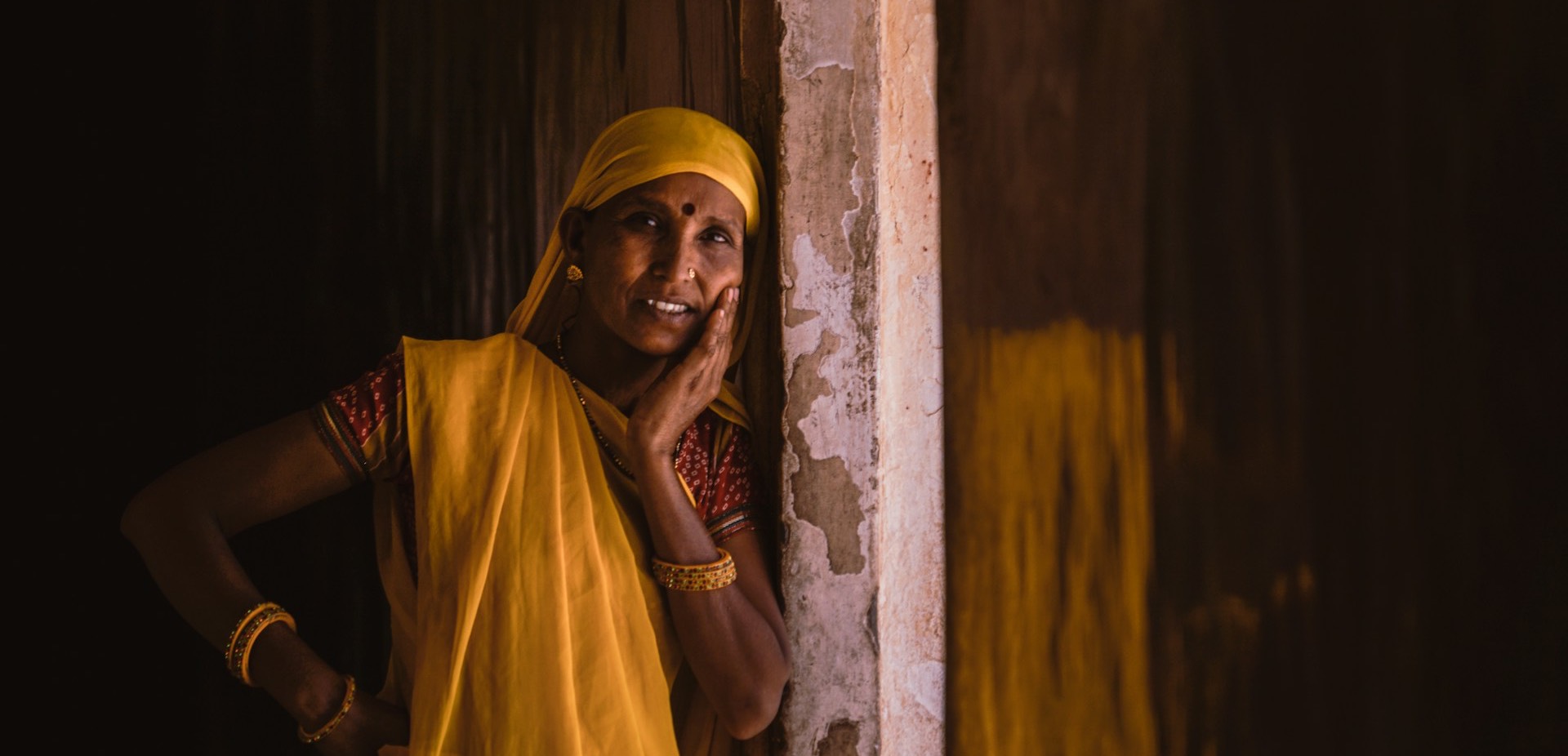What could 2020 hold for India’s relations with Brunei? With bilateral relations at an historic low Mustafa Izzuddin (ISAS, Singapore & LSE Alumnus) argues that a convergence of geopolitical strategic goals could allow India to expand its geo-strategic footprint in Southeast Asia while simultaneously allowing the energy-rich Brunei to continue to grow economically.
In India’s eastward engagement with Southeast Asia under Narendra Modi’s ‘Act East’ policy, the energy-rich maritime country of Brunei would be expected to feature prominently. Yet, during Modi’s first term in office from 2014 to 2019, India neglected Brunei: Modi has not visited Brunei, despite visiting several Association of Southeast Asian Nations (ASEAN) countries, either in a bilateral meeting or a multilateral summit. Meanwhile, the Sultan of Brunei, Hassanal Bolkiah, has visited India only once to celebrate 25 years of ASEAN-India dialogue relations.
Strategic convergence
Although bilateral cooperation has been taking place between India and Brunei since diplomatic relations were established in 1984, the potential in India-Brunei relations has been unrealised to its fullest. Should India and Brunei redress this benign neglect in their bilateral ties both would mutually benefit. Modi’s re-election to a second term in 2019 could pave the way to resuscitate India-Brunei relations as an integral plank of his government’s ‘Act East’ policy to expand India’s geostrategic footprint in Southeast Asia.
Engaging Brunei is strategically significant to India as it could lend greater intensity and vitality towards the country’s determined quest to connect comprehensively with Southeast Asia. This would include engaging constructively with each ASEAN country on a sustained bilateral basis.
The focus on maritime countries like Singapore, Indonesia and Malaysia have taken prominence in India’s ‘Look (now Act) East’ policy since 1991. As a result, Brunei appears to be relegated in importance and neglected by Delhi policymakers. Modi should thus step up efforts to hoist India-Brunei relations so that Brunei stands on a more equal footing with its maritime partners.
Engaging India meets the strategic purpose of Brunei’s practise of hedge diplomacy – also known as performing a balancing act in its foreign policy. This is linked to small state diplomacy whereby small states like Brunei balance and counterbalance their foreign bilateral relations in order to remain secure and autonomous, due to the complexity of geopolitics. Brunei maintains close defence relations with the UK and the US while advancing economic ties with China and its ASEAN maritime neighbours.
That Brunei is looking as much to the East as it is to the West suggests that the country would welcome a more constructive engagement with India. Outside of Southeast Asia but within Asia, it is with China that Brunei’s relations have gradually intensified in recent years. But policymakers in Brunei are not keen to put all their bilateral eggs in the Chinese basket, given China’s assertive regional behaviour in the disputed South China Sea where Brunei is also a claimant. Brunei would therefore be open to engaging India as a potential route to diversify its foreign policy.
Strategically speaking, India could envision Brunei as a gateway to Southeast Asia and a friend in ASEAN – Brunei will be the ASEAN Chairman in 2021 – to redress the unfortunate reality that India has not engaged the region as much as China and the United States. For its part, Brunei could imagine India as a gateway to engaging the other seven countries in South Asia.
Maritime engagement and defence cooperation
One area for closer India-Brunei cooperation is in the maritime domain. For much of Modi’s first term, Indonesia was India’s preferred maritime partner, but for his second term, Modi may want to also engage other maritime countries in Southeast Asia. For instance, Brunei can provide the policymakers in Delhi with a palpable investment opportunity to augment its deep-water Muara port, through which India could stand to benefit geostrategically and geoeconomically.
The penchant for ‘port-led development’ is a central tenet of the Modi-led India’s first-ever policy for the Indian Ocean known as the Security and Growth for All in the Region (SAGAR). A central plank of India’s ‘Act East’ policy, SAGAR is focused on advancing the blue economy and maritime security. The idea of ‘port-led development’ is to strengthen domestic maritime infrastructure and bid aggressively for developing ports, as was the case with the Indonesian port in Sabang.
Recognising that it has been overly reliant on Western countries for its defence cooperation and military purchases, Brunei has sought to diversify its defence relations by courting Asian countries like India. After a bilateral defence pact was signed in 2016, Brunei and India have endeavoured to enhance their defence cooperation such as conducting joint military exercises, naval ship visits, cooperation between defence industries, and the exchange and training of military officers.
One area which both countries can capitalise is Brunei importing military equipment from India if Delhi’s defence industry is able to manufacture arms attractive enough for export purchases. Brunei’s arms exports come primarily from Western countries as the country restricts itself from purchasing arms from its maritime neighbours in order to remain on good terms with each one of them. Looking to India therefore to buy arms is a plausible option for Bruneian policymakers.
Another area to boost India-Brunei defence cooperation is to step up joint military exercises, as India is keen to expand its defence and security footprint in Southeast Asia. For instance, India could encourage Brunei to participate in the sequel to the maiden trilateral naval exercise called SITMEX – a collaboration with Singapore and Thailand aimed at buttressing India’s maritime links with Southeast Asian countries whilst contributing to maritime security through the use of the Andaman Sea. The trilateral SITMEX was a pilot naval exercise that India plans to multilateralise in future by including more countries from Southeast Asia, Brunei being an ‘oven-ready’ option.
While Brunei does not see Delhi as a security guarantor, its defence cooperation with India is an important contributory factor towards the survival of this monarchical small state. Meanwhile for India, Brunei could prove to be a beneficial conduit for Delhi policymakers to augment India-Southeast Asia defence relations against a volatile regional security landscape in the Indo-Pacific.
Economic prospects
For the past couple of decades, Brunei has stepped up efforts to pursue a post-oil economy in order to reduce the country’s overreliance on oil and gas and be less subject to volatility in the global pricing of oil exports. Economic diversification–which is consonant with the aims of Vision Brunei 2035 to achieve progressive and sustainable economic growth–necessitated the Bruneian government to look studiously at developing other sectors of the economy including by attracting foreign direct investment and boosting bilateral trade with as many countries as possible.
Against this backdrop and that economic diplomacy is a central tenet of India’s ‘Act East’ policy of engaging Southeast Asia, there is scope for increasing economic engagement in India-Brunei ties. Right now, India-Brunei trade, which stands at US$364.5 million and facilitated in part by the India-ASEAN Free Trade Area, is subpar, and investments in each other’s country are miniscule.
Accordingly, India, which boasts a fast-growing trillion-dollar economy, could invest in the sectors of Brunei’s local economy that are beyond oil and gas. These sectors could include information and communications technology (ICT), finance and manufacturing. Encouraging more Indians to visit Brunei would also help to boost the local tourism market, including the niche of eco-tourism, which Brunei has been actively promoting as a tourist hub in the biodiverse island of Borneo.
Although not a member of the India-led Bay of Bengal Initiative for Multi-Sectoral Technical and Economic Cooperation (BIMSTEC), the policymakers in Delhi may want to enlarge its membership by including more countries from Southeast Asia apart from the existing members, Thailand and Myanmar. Brunei could be a beneficiary in the same way the country could potentially gain from implementing cooperative projects with China under Beijing’s Belt and Road Initiative.
After pulling out of the megaregional free trade pact called the RCEP or the Regional Economic Comprehensive Partnership and scrapping a joint project with Singapore to develop Amaravati city in Andhra Pradesh presumably due to domestic reasons, the policymakers in Delhi will also have to convince their Brunei counterparts that India can still be considered a trusted and reliable economic partner, in which it would honour agreements and deliver outcomes in good time.
India’s voluminous export of Brunei’s oil and gas suggests that India sees Brunei as important to its energy security. Notwithstanding the Chinese apprehensiveness, India and Brunei could jointly explore oil and gas deposits in the parts of the South China Sea claimed by Brunei. That way, both India and Brunei stand to benefit, Brunei then being able to sell more oil and gas to India.
People-to-people diplomacy
Along the lines of Southeast Asia being a magnet to a large Indian diaspora, Brunei is home to an Indian diaspora numbering 11,500 in a country of 423,000 people. Indians in Brunei could serve as a strategic asset to bring Brunei and India closer together through business networks like the Indian Chamber of Commerce and cultural associations such as the Indian Association of Belait.
Brunei’s receptiveness to India can also be attributed to the country’s future royal succession. One essential focus of the current 73-year-old Sultan of Brunei and his loyalists is to ensure that the kingdom remains intact when the royal succession eventually takes place. To this effect, the kingdom has to ensure a continued stream of revenue from economic growth in order to provide extensive social welfare for its people such as in education and healthcare, and in so doing, keeping them contented by preserving the longstanding social contract. In recent years, this social compact between the kingdom and the people has been tested by economic grievances and youth restiveness but not to the extent of tearing the country apart.
The relations between Brunei and India are on the cusp of positive transformation. The moment is opportune and the atmosphere is conducive for the governments of both India and Brunei to intensify efforts towards making India-Brunei relations more significant in each other’s foreign policy. The political leaderships of Modi and the Sultan will be pivotal in redressing the benign neglect in India-Brunei ties, by working towards taking this lackadaisical bilateral relationship to the next level of deepened engagement on a sustainable basis. But while the Sultan has met Modi in Delhi, Modi has yet to make a trip to Brunei. Envisioning the bilateral potential in India-Brunei relations must therefore start with Modi prioritising Brunei on his foreign travel schedule in 2020.
This article gives the views of the author, and not the position of the South Asia @ LSE blog, nor of the London School of Economics. Photo Credit: Free-photos; Pixabay.
Dr Mustafa Izzuddin is Research Fellow at the Institute of South Asian Studies (ISAS), National University of Singapore (NUS). He received his PhD in International Relations from the London School of Economics and Political Science in 2015. He can be contacted at isasmi@nus.edu.sg or uspmi@nus.edu.sg.







